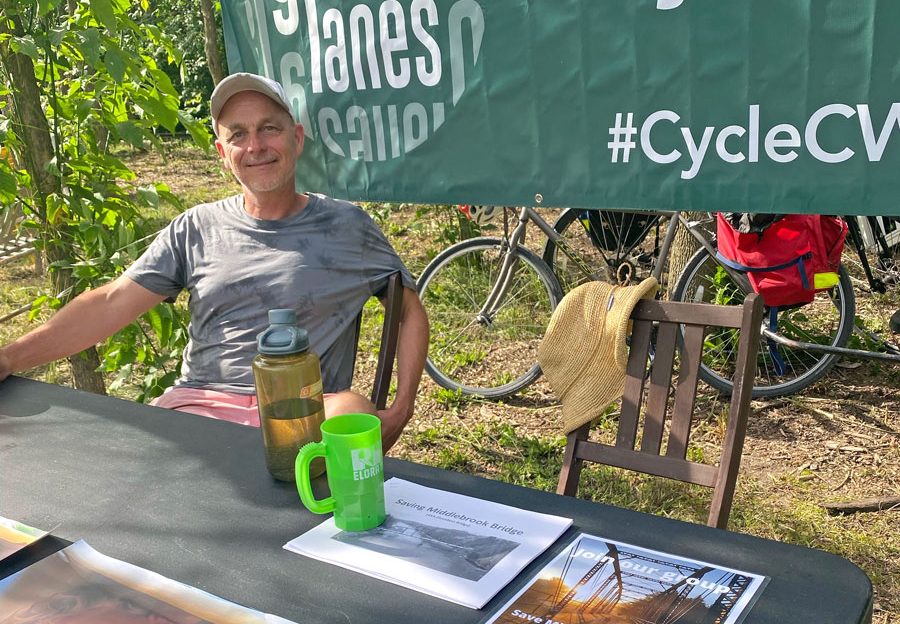ELORA – After unsuccessful pitches to Centre Wellington and Woolwich councils to save, rather than demolish the Middlebrook bridge, members of a local citizens’ group thought they’d have to wait until after this fall’s municipal election before making another attempt to save the bridge.
But all that changed after the Save Middlebrook Bridge group received a couple of offers it couldn’t refuse.
The Middlebrook bridge is west of Elora on Middlebrook Road and spans the Grand River, linking the two townships.
It was closed to vehicles in 2012 because of its deteriorating condition and in January of 2020, both township councils, which share the cost of maintenance and repairs, voted to demolish the bridge rather than rehabilitate or replace it.
It is to be demolished in 2028 with the cost split between the two municipalities. In April 2020 barricades went up blocking access for pedestrians and cyclists.
Citizens who use the bridge and trails on either side say they weren’t aware it would be demolished and banded together to form the Save Middlebrook Bridge group.
The bridge, built in the early 1900s, has historic significance, they say, and is important infrastructure for hikers, cyclists, anglers and nature-lovers.
They presented a request to retain the bridge in some form to both councils last year and for a moment felt there might be a reprieve when Centre Wellington council voted to reconsider its decision to demolish the bridge.
But when Centre Wellington staff presented a report to council last November with updated figures, council reaffirmed its decision to demolish.
It will cost $720,000 to remove the bridge; $1.6 million to rehabilitate the bridge for pedestrian use, and $1.2 million to replace the aged structure for pedestrian use.
But since then, Save Middlebrook Bridge has partnered with Green Lanes, a cycling group interested in improving cycling infrastructure in Centre Wellington.
Second, Elora residents Nancy Harper and Doog Farquhar offered to donate some of the proceeds from the Fork in the Road Music Festival on their property on June 25.
That prompted the two groups to approach the Centre Wellington Community Foundation to start a Making Nature Accessible fund for money to purchase and maintain natural spaces for public use.
The third development is that the Middlebrook bridge group has connected with the Rare Charitable Research Reserve, which, according to its website, is “a community-based urban land trust and environmental institute that protects over 1,200 acres of highly sensitive lands across seven properties in Waterloo Region and Wellington County.”
“Land trust has been in our minds all along,” said Stephanie Lines-Toohill, a Save Middlebrook Bridge organizer.
“And Rare is already doing it. They have the expertise and they’ve said they would partner with us.
“So, this has become much bigger than the Middlebrook bridge. It makes sense to look at other bridges and other places that are important natural heritage spaces. If council is not placing value on them, someone needs to.”
Lines-Toohill said many people have offered money but because the group is not set up for that, it has so far refused.
Once the fund is established with the Community Foundation, the group can accept financial donations. And if there’s enough collected, organizers hope they will have a little more clout when they approach new councils in November.
“It’s a colossal undertaking – we are not naïve about that. But we also know a lot of people use this bridge and we believe nature should be accessible to everyone,” said Lines-Toohill.
“There’s lovely energy about this. We’re not giving up.”




